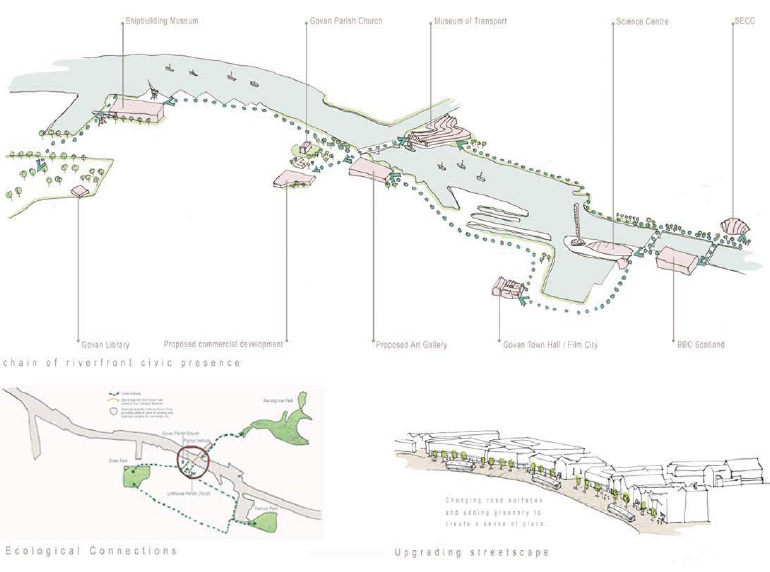The PgDip is a nine months full-time or 18 months part-time course for a total of 120 credits; subject to approval by the Course Director and the satisfactory completion of all diploma work students are given the opportunity to extend their PgDip course of study for an additional three months so as to convert their diploma into an MSc. The MSc in Urban Design is a twelve months course full-time or a 24 months part-time for a total of 180 credits. The PgCert corresponds to the accumulation of a total of 60 credits and can also be taken in part time or full-time mode.
All information about registration and fees can be found here.
The PgDip/MSc/PgCert degree provides an open and creative learning environment embracing theory and practice where students have the opportunity to explore urbanism in a broad manner.
The award of the PgDip/MSc signals the academic culmination of a design-centred professionally orientated education in urban issues. Studies, which call for theoretical, experimental and practical exemplification, are predominantly project-based and demand a high level of commitment.
The MSc in Urban Design is accredited as a Specialist Course by the Royal Town Planning Institute. As part of the course, students will acquire a vast and complex range of disciplines and skills, and learn how to manage them as part of meaningful and sustainable design scenarios. As such, the course includes as compulsory parts of its structure the majority of subjects that will form a student as a competent urban designer; at the same time, it nourishes special interests and reserves for its third part (the Dissertation that after the Diploma leads to the Masters) the possibility for students to develop in detail a particular interest related to urban design.
The course is design based but strongly relies on theoretical input. The design studio is the core element of the course and runs throughout the first two semesters. In parallel, the various aspects of urban design theory and practice are explored in taught classes. In their third semester, students can decide to develop the theme of the studio as an advanced design project or to concentrate on other areas of interest in a theoretical manner as a written dissertation.
During the year, students will be invited to attend lecture series by prominent practitioners and scholars in the field of urbanism presenting their recent work, theories and discussing contemporary directions in planning and urban design will take place during the year. Details on these lectures are normally announced during the year.
Donwload here the complete Handbook reporting the detailed structure of the course.
*** ***
As in the past years, the studio project was instigated by Glasgow City Council; the area selected was Govan. Overall ambition for the year was to develop long term plans for the regeneration of Govan, taking in account its strengths, weaknesses and potential opportunities. The contents and approach have to some extent changed this year. Whilst maintaining the overall objective, the work has been structured in four very distinct phases, all rooted in current research ongoing in UDSU: theory and applications have been part of the teaching package, so students should now be equipped with substantial new skills in urban design and should be able to demonstrate how these have been assimilated and mastered using their work as example. Each of these stages has been delivered through lectures, workshops and tutorials, as well as a set of detailed briefs. The approach gives strong emphasis to the past and present morphology of Govan, and in particular to its deep study and assessment. The main educational intent was to show students that understanding the underlying robust urban structure of a place is crucial in planning for its development and management. Therefore we put strong emphasis on the measurement of the urban fabric and its precise design as (some of the key) drivers of design. To these, students have added several other drivers; economical, social, environmental ambitions have all contributed to the development of varied and diverse scenarios for the future of Govan. Many students have moreover taken the initiative to consult with local stakeholders. Overall, the year has produced a good range of ideas, all of them well substantiated by the first research phases and guided in principle by the initial strategic ambitions.
Donwload here a more detailed and illustrated summary of the course.



